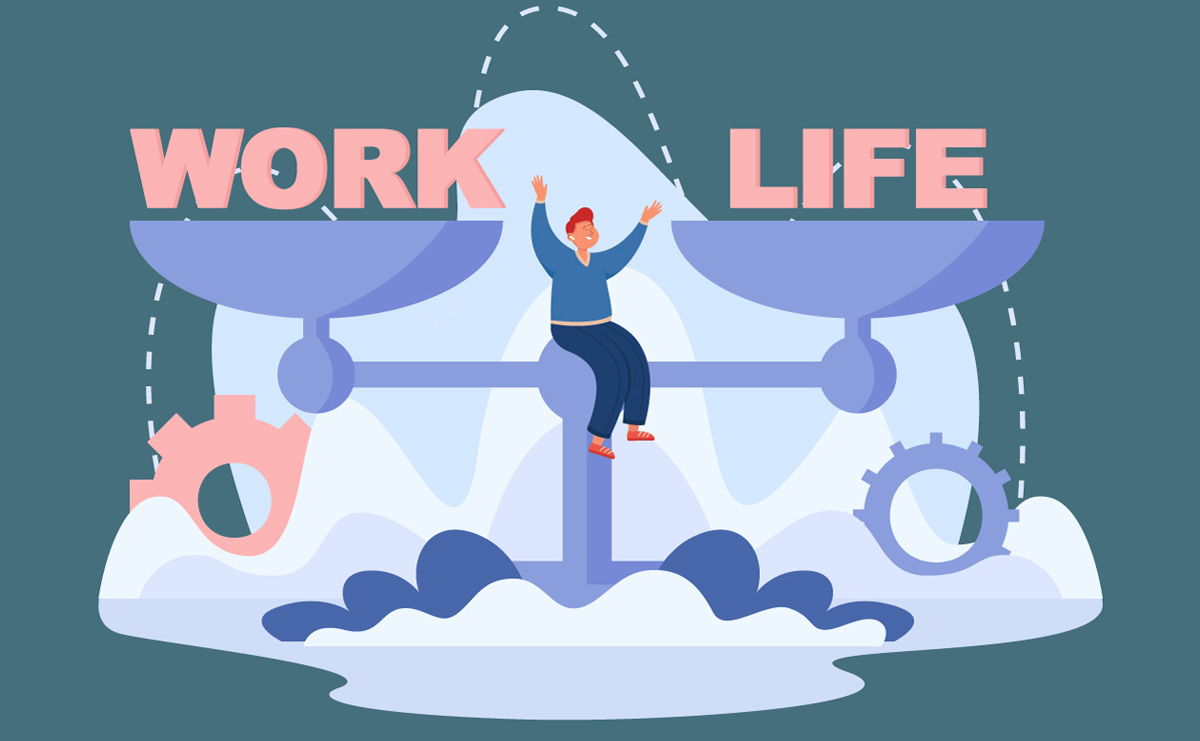Contents
Work-Life Balance in Law: How Many Hours Do Lawyers Really Work?
The legal profession is notorious for its long hours and high pressure, making it tough for lawyers to find a balance between work and personal life. The lawyer’s work schedule can often be demanding, with long hours and tight deadlines, especially during critical cases. With the demands of meeting billable hours, preparing for cases, and managing client expectations, it can feel like work never stops. But just how many hours are lawyers actually putting in, and what toll does this take on their well-being and personal lives?
The Reality of Lawyer Working Hours
Lawyers are often depicted as working grueling hours, but this portrayal is not far from reality in many cases. According to surveys, most lawyers work between 50 and 80 hours per week, far exceeding the standard 40-hour workweek. For those in Big Law or high-pressure specialties such as corporate litigation or mergers and acquisitions, the hours can be even longer, especially during critical periods of a case or deal.
While billable hours vary by firm and location, many big law firms set expectations of 1,800 to 2,200 average billable hours for attorneys annually. Working “big law hours” often means putting in 60 to 80 hours a week, with many lawyers facing long nights and weekend work to meet client demands and firm expectations. This figure does not include non-billable tasks such as administrative work, business development, or training, adding to the total time lawyers spend working.
The Role of Specialization in Work Hours
Managing a lawyer’s work schedule efficiently is key to avoiding burnout in such a demanding profession. Not every area of law demands the same amount of time. Corporate lawyers, litigators, and those working in fast-paced fields like mergers and acquisitions, or criminal defense often put in longer hours because of the complexity and urgency of their cases. On the other hand, lawyers in areas like family law, estate planning, or public interest may have more predictable and manageable schedules.
Solo practitioners face a unique set of challenges, juggling both legal work and the day-to-day tasks of running a firm. While they may have more flexibility over their schedules, they often work longer hours, especially in the early stages of their practice. Using a tool like RunSensible can help solo practitioners streamline operations, manage client interactions, and balance work with personal life, ultimately reducing the need for extended work hours.

How Junior and Senior Lawyers’ Work Hours Differ
Junior lawyers often face grueling work schedules, especially in large firms where meeting high billable hour targets and handling administrative tasks can stretch their workweeks to 60-80 hours. In addition to billable work, a junior lawyer’s work schedule is typically filled with research, drafting documents, and attending meetings with senior partners, which adds to the overall workload. The learning curve also plays a role, as newer lawyers must invest additional time to grasp the complexities of their cases and the firm’s processes. Client deadlines and high expectations often lead to late nights, with junior lawyers eager to prove themselves.
As lawyers gain experience and seniority, their working hours evolve but do not necessarily decrease. Senior lawyers, especially partners, take on more strategic responsibilities such as client management, business development, and firm leadership. While they may delegate much of the technical legal work to junior associates, managing teams, overseeing cases, and handling high-stakes decisions keep their hours long. Additionally, senior lawyers are often involved in business development activities and firm operations, which offer more flexibility but come with significant pressure and responsibility. This shift in duties marks a change in how senior lawyers spend their time, though the intensity of their work remains.
The Impact on Work-Life Balance
The long hours lawyers work can significantly impact their work-life balance. Many attorneys struggle to find time for personal hobbies, family, or even adequate rest. The high-pressure environment contributes to high levels of stress and burnout, with some lawyers choosing to leave the profession altogether in search of more balance.
Recent years have seen increasing awareness of the mental health challenges within the legal profession. Studies have shown that attorneys have higher rates of depression, anxiety, and substance abuse compared to other occupations. The intense workload and constant pressure to perform are significant in these statistics.
Tools like RunSensible can play a crucial role in alleviating this pressure by offering workflow automation and time management features, helping lawyers manage their workload efficiently and reclaim personal time.
Gender Disparities in Work-Life Balance
Work-life balance challenges are often compounded for women in law. Female lawyers, especially those with children or caregiving responsibilities, frequently face more significant difficulties in managing work and family life demands. Despite progress, the legal profession still grapples with the gendered expectations that women must “do it all,” managing both high-powered legal careers and household responsibilities.
Female lawyers may feel pressure to take on fewer cases or reduce their billable hours to accommodate family commitments, which can impact their career progression. As a result, many women leave the profession or move to in-house counsel roles that offer more predictable hours but potentially less career advancement.
Billable Hours vs. Non-Billable Work
The concept of billable hours is one of the most significant contributors to the extended workdays lawyers face. In many firms, lawyers are expected to meet high billable hour targets, which refer to the hours they can charge clients directly for their work. But billable hours do not capture the entire picture. Lawyers also spend time on non-billable tasks such as:
- Administrative duties: Managing emails, filing documents, and tracking time can take hours every week.
- Business development: Networking, attending events, and meeting potential clients are essential but time-consuming aspects of growing a practice.
- Training and continuing education: Lawyers must stay updated on legal developments requiring regular training and research.
These non-billable tasks can add 10 to 20 hours a week, depending on the practice area and size of the firm. This additional workload often extends the typical lawyer’s week far beyond what appears on paper. Tools like RunSensible can help streamline non-billable tasks, freeing up more time for personal life without sacrificing productivity.
How Crunch Time Affects Lawyers
In the legal profession, “crunch time” refers to periods of intense work when deadlines loom, cases peak in complexity or critical deals near closing. These periods demand that lawyers dedicate additional hours—often well beyond the typical workday—leaving little room for rest or personal activities. While crunch time is a common experience across various legal fields, its frequency and intensity can vary depending on the nature of a lawyer’s practice and the demands of their clients.
During crunch time, lawyers often work late nights, weekends, and sometimes back-to-back days with minimal sleep. Litigation attorneys may experience this before a trial, spending countless hours preparing motions, briefs, and witness examinations. Corporate lawyers often face crunch periods leading up to closing mergers or acquisitions, finalizing contracts, and negotiating last-minute deal terms. This extended work can lead to physical and mental exhaustion, making it difficult to maintain focus and productivity in the long run. Despite the pressures, many lawyers embrace these high-intensity moments as they often come with the excitement of achieving critical career milestones, such as winning a case or closing a major deal. However, crunch time can contribute to burnout, stress, and long-term health issues if not managed carefully.
What Factors Influence Lawyer Working Hours?
Lawyers’ working hours can vary significantly depending on a range of factors, from the area of law they practice to their role within a firm. While long hours are often synonymous with the legal profession, certain vital elements influence how much time a lawyer works on any day or week.
One of the most prominent factors is the practice area. Lawyers in high-pressure fields like corporate law, mergers and acquisitions, and litigation often work extended hours, especially during critical periods like deal closings or trial preparation. By contrast, lawyers in areas such as estate planning or family law may experience a more predictable workload, although they are not immune to periods of high demand. Another factor is billable hour requirements. Many firms set specific annual billable targets for their lawyers, pushing them to work longer hours to meet these goals. Junior associates in large law firms, in particular, are often required to hit targets of 1,800 to 2,200 average billable hours for attorneys, which needs to account for non-billable tasks like administrative duties, training, or business development.
Client expectations are another crucial factor in determining a lawyer’s working hours. High-profile clients or those dealing with time-sensitive matters often require immediate attention, which can lead to lawyers working outside of regular business hours to meet deadlines or handle emergencies. Firm culture and leadership also play a significant role. Some firms value long hours as a measure of commitment, while others promote more flexible work arrangements. Finally, personal career goals and the lawyer’s seniority can also impact working hours. Junior lawyers may feel pressure to work longer to prove themselves, while senior lawyers may work extensive hours managing client relationships, business development, or firm leadership responsibilities. All these factors collectively shape the number of hours a lawyer is likely to work at any given time.
Efforts to Achieve Balance
As firms and organizations become more aware of the importance of mental health and employee well-being, some have started to offer initiatives aimed at helping lawyers achieve a healthier work-life balance. These include:
- Flexible work hours and remote work options: The COVID-19 pandemic accelerated the adoption of flexible work arrangements. Many law firms now offer remote work options, allowing lawyers to manage their schedules more effectively.
- Reduced billable hour targets: Some firms are experimenting with reducing billable hour targets, recognizing that work quality and attorney well-being are just as important as quantity.
- Mental health and wellness programs: Many firms now offer mental health support, including counseling services, wellness programs, and initiatives to reduce stigma around mental health struggles.
- Delegation and outsourcing: Legal professionals increasingly utilize virtual assistants, paralegals, and technology to delegate administrative tasks, allowing lawyers to focus more on substantive legal work and reclaim personal time.
RunSensible can support these efforts by providing flexible work options, helping lawyers delegate tasks, and offering tools to maintain a balanced workload. By embracing technology, lawyers can improve their work-life balance while maintaining a high level of performance.
How RunSensible Enhances Work-Life Balance for Lawyers
RunSensible is a powerful tool that can improve work-life balance for lawyers by streamlining various administrative processes and reducing the hours spent on non-billable tasks. One of its key features is automated time tracking, which eliminates manual time logging and allows lawyers to focus on core legal work. This automation saves time and frees up space for personal activities, ensuring work does not dominate the day.
The software task management and prioritization tools help lawyers stay organized and efficiently manage deadlines. Lawyers can significantly reduce routine administrative work and focus on higher-value activities by prioritizing essential tasks and utilizing document automation for repetitive duties. This improves productivity and reduces the need for extended work hours.
Additionally, integrated client communication tools streamline interactions by consolidating emails, calls, and follow-ups into one platform. This allows for quicker responses and reduces the time spent on communication tasks. Flexible scheduling features help lawyers manage appointments efficiently, avoiding after-hours work and improving the separation between personal and professional time.
RunSensible also offers empowering remote work capabilities, allowing lawyers to manage their work from anywhere, providing greater flexibility. Through CRM integration, the platform simplifies client onboarding and follow-ups, enhancing overall efficiency and helping maintain a balanced workflow.
By optimizing these processes, RunSensible enables lawyers to reduce their working hours, focus on billable tasks, and achieve a more relaxed and balanced work-life balance.
Final Thoughts
In the end, there is no secret that being a lawyer often means long hours and a demanding schedule. Between chasing billable hours, preparing cases, and keeping clients happy, many lawyers find themselves working far beyond the typical 40-hour week. This can take a real toll on their personal lives and well-being, especially in high-pressure areas like corporate law or litigation.
But it does not have to be all-consuming. More and more firms are recognizing the importance of a healthy work-life balance, offering flexible schedules, mental health support, and better delegation of tasks. Tools like RunSensible can make a huge difference by automating time-consuming tasks, helping lawyers focus on what matters most, and freeing up time for themselves.
Ultimately, while the demands of the profession are real, with the right support and strategies, it is possible to work smarter, not harder, and find a balance that works for both career and life.
Frequently Asked Questions
Do lawyers work more than other professionals?
Lawyers are often perceived as working exceptionally long hours compared to other professionals, and this reputation is not unfounded. While many high-stakes professions require significant time commitments, lawyers, particularly those in private practice or large firms, tend to work more hours on average than individuals in many other fields. This is primarily due to the nature of legal work, which often involves strict deadlines, complex case preparations, and client demands that extend beyond a typical workday.
Do all lawyers work long hours?
Not all lawyers work long hours, though it is common in high-stakes fields like corporate law and litigation, where meeting billable hour targets and managing intense deadlines can lead to extended workdays. Lawyers in smaller firms or areas like family law and estate planning may have more predictable schedules. A lawyer’s working hours also depend on their seniority, with junior lawyers often working longer as they establish themselves, while senior lawyers may have more flexibility but greater responsibilities. Working hours vary based on practice area, firm size, and career stage.
How many hours does the average lawyer work in Canada?
The average lawyer in Canada works between 50 and 60 hours per week, with those in larger law firms often working longer to meet billable hour targets of 1,700 to 2,000 hours annually. Solo practitioners and lawyers in smaller firms may have more flexible schedules but still face significant demands, often resulting in similar working hours. Overall, lawyers in Canada tend to work more than the typical 40-hour workweek due to client deadlines and firm expectations.
What type of lawyers work the most hours?
Corporate lawyers, especially those working in mergers and acquisitions and litigators preparing for extensive trials, tend to work the most extended hours. Associates at Big Law firms often face high billable hour requirements, meaning late nights and long weeks are common. Lawyers in specialized areas like intellectual property, bankruptcy, and international law also put in a lot of hours due to the complexity of their cases. These practice areas are known for having some of the most demanding work schedules in the legal profession.
Does Law Profession Have a Good Work-Life Balance?
The legal profession is often associated with long hours and high levels of stress, which can make achieving a good work-life balance challenging for many lawyers. While some areas of law allow for more manageable schedules, overall, the work-life balance in the legal field can be difficult to maintain, particularly in high-pressure environments like corporate law, litigation, and large law firms.
Do lawyers work on weekends?
Yes, many lawyers do work on weekends, especially those in high-pressure areas such as corporate law, litigation, and mergers and acquisitions. Weekend work often becomes necessary when deadlines are approaching, during trial preparation, or when urgent matters arise for clients. Lawyers may also use weekends to catch up on billable hours, conduct legal research, draft documents, or prepare for upcoming cases.
How many hours does a lawyer work on a case?
The number of hours a lawyer works on a case can vary significantly depending on several factors, including the case’s complexity, the type of legal matter, and the stage of the process. Simple cases, such as drafting contracts or handling uncontested divorces, may require between 10 to 20 hours of a lawyer’s time. Moderately complex cases, like civil litigation or small business disputes, might take 50 to 100 or more hours, especially when court appearances or negotiations are involved. The time investment can stretch into hundreds or even thousands of hours over months or years for highly complex cases, such as corporate mergers, high-stakes criminal defense, or class-action lawsuits. The overall time commitment also depends on whether the lawyer handles all aspects of the case individually or works with a team. Litigation often involves extensive preparation, research, client meetings, discovery, and court time, making the work hours unpredictable.
Book a personalized demo to discover how RunSensible can help you reduce your administrative work hours and improve your work-life balance.
Disclaimer: The content provided on this blog is for informational purposes only and does not constitute legal, financial, or professional advice.







